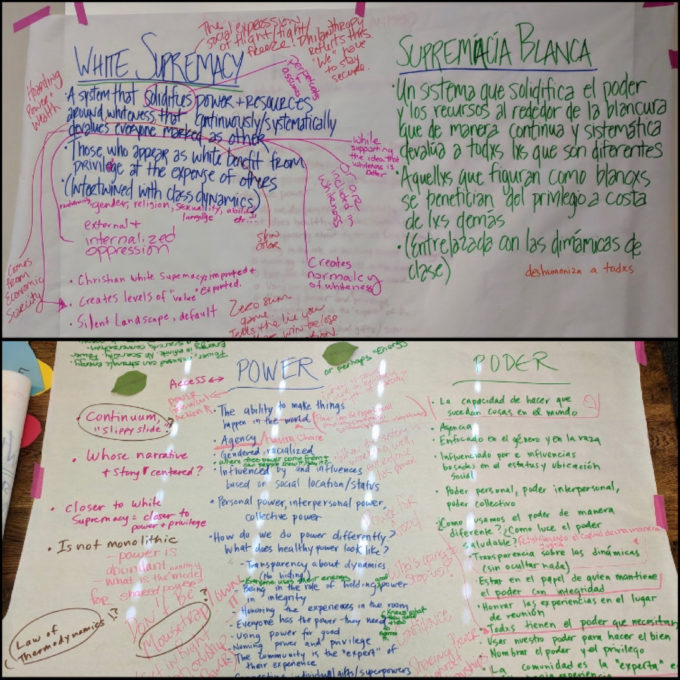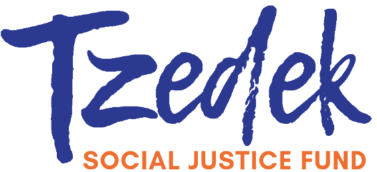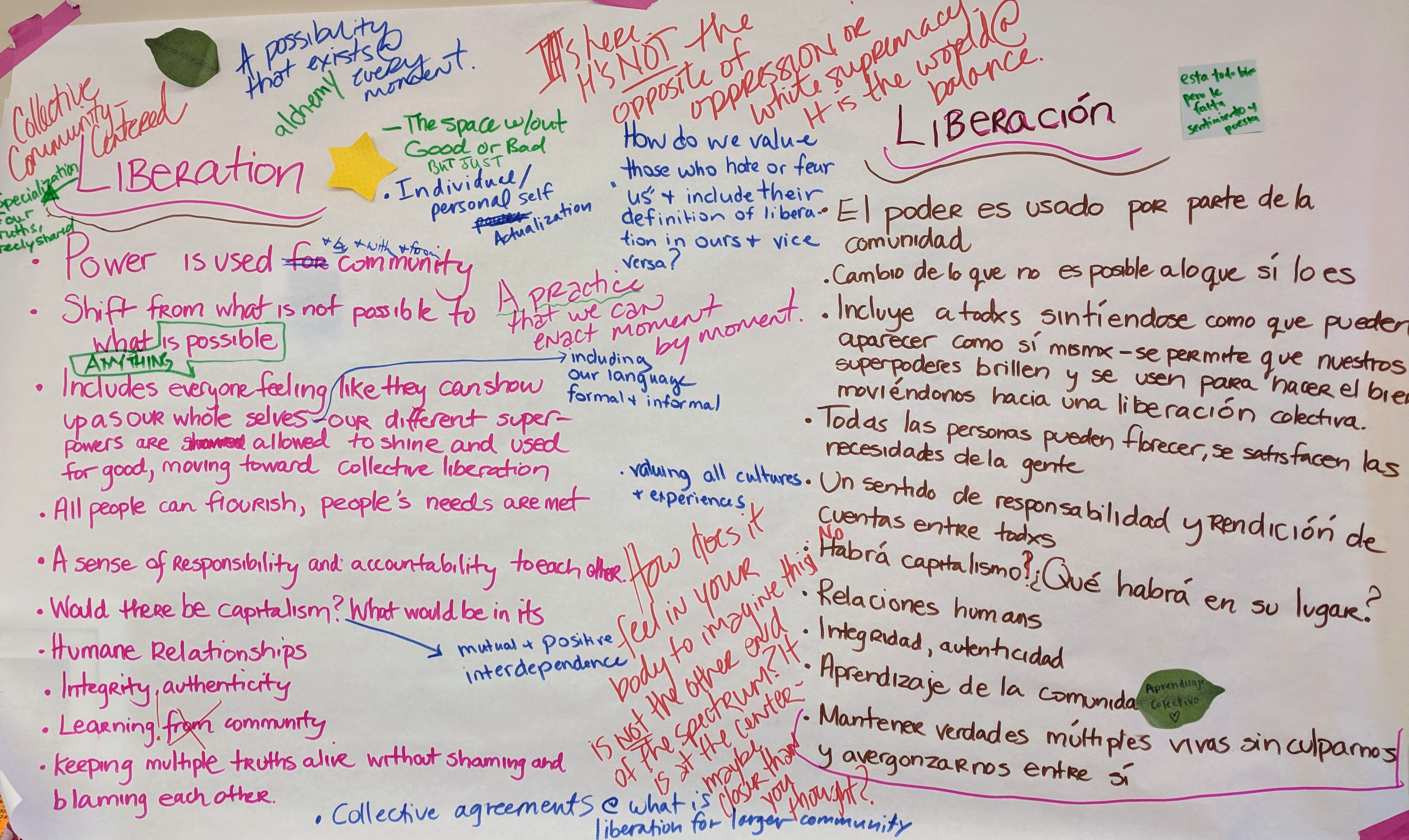Available in Español
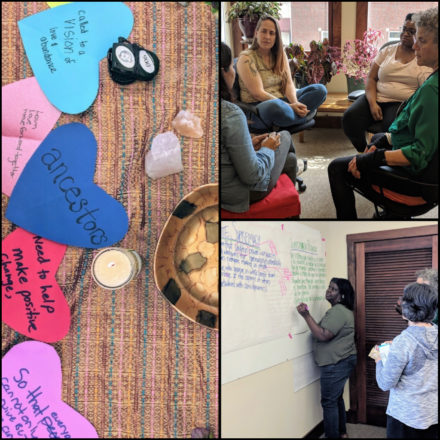 While our community-based research unfolds, AMKRF is building a shared analysis. What is a shared analysis and what does building a shared analysis look like?
While our community-based research unfolds, AMKRF is building a shared analysis. What is a shared analysis and what does building a shared analysis look like?
Through individual reflection, staff dialogue, and deep conversations with our trusted advisors, we are exploring what power, white supremacy, oppression, and liberation mean to us.
How we understand the world informs every element of our work, from our grantmaking processes to our office policies. Through building a shared analysis, we are bringing the implicit assumptions and frameworks that show up in our work into the open.
Something is lost when organizations do not spend time collectively building a shared analysis. We are learning that when we haven’t named the context or understandings that guide our actions, we do not work from a shared vision. For example, as staff of a family foundation if we do not share an understanding of what liberation means, then it is easy for us to fall back on patterns of white saviorism or charity.
Additionally, when we do not take time to share and capture what we learn in the process of doing our work, we miss an opportunity to raise the collective wisdom of our organization. On our team, there is knowledge about social justice philanthropy and language justice, for example, that cannot be held by one staff member if we want to live into our organizational vision.
In April, we gathered with our trusted advisors to deepen our analysis about power, white supremacy, oppression, and liberation. Our conversation revealed so much about the roadblocks Asheville leaders encounter, the need to envision power as a positive force, and the dreams that guide our work for justice.
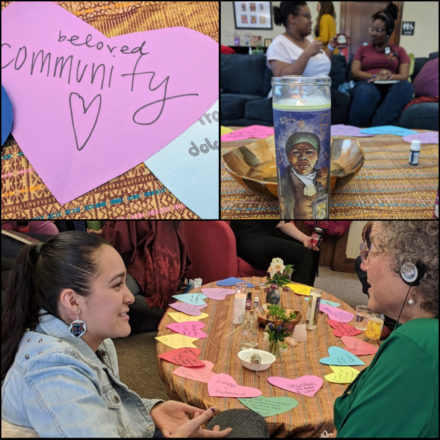 This process of collective analysis building has led AMKRF staff to ask the following questions:
This process of collective analysis building has led AMKRF staff to ask the following questions:
- How do our identities impact how we understand power, liberation, white supremacy, and oppression?
- How do we build community-centered processes so that our work reflects the wide-ranging lived experiences that comprise Asheville?
- What are concrete ways we can be in right relationship with power? What do transparent policies and practices look like? Who are we accountable to?
- What does the world we’re working towards look like? What does it feel like? What are the indicators that we are working for liberation?
The process of asking these questions is impacting our work in concrete ways.
One concrete outcome of our learning is that we have introduced three pilot programs. The Tzedek Brilliance Awards, Tzedek Equity Learning Circle, and Tzedek Impact Awards represent three shifts in our organizational thinking.
First, these programs are rooted in trust-based philanthropy. Each of these pilots is built upon the knowledge that individuals and communities are the experts of their own lives and best suited to decide how to distribute resources. The funds associated with each of these programs are entirely unrestricted, so grantees, rather than funders, decide how to spend grant dollars.
Second, these programs include AMKRF’s first attempt at a community-based grantmaking process. Three trusted advisors and two AMKRF staff will comprise the selection committee for the Tzedek Brilliance Awards. The rubric that will guide the selection process was also shared with applicants as a part of the FAQS. We intend to work with similar transparency moving forward.
Third, these programs reflect our desire for deep impact. By directing larger grants to Asheville leaders and organizations, we hope to support change-makers to focus more time manifesting their vision and less time securing funds to resource their efforts.
Our learning journey continues. Over the coming months as the results of our community-based research emerge, we will continue to document and share the process with you.
We are so grateful to Tamiko Ambrose Murray of Ambrose Consulting and Beth Trigg of Taproot Consulting for guiding us through our relationship and analysis building work and for leading our community-based research process. You can learn more about their work with social justice organizations by reaching out to them at ambroseconsultingwnc@gmail.com and beth.trigg@gmail.com.
